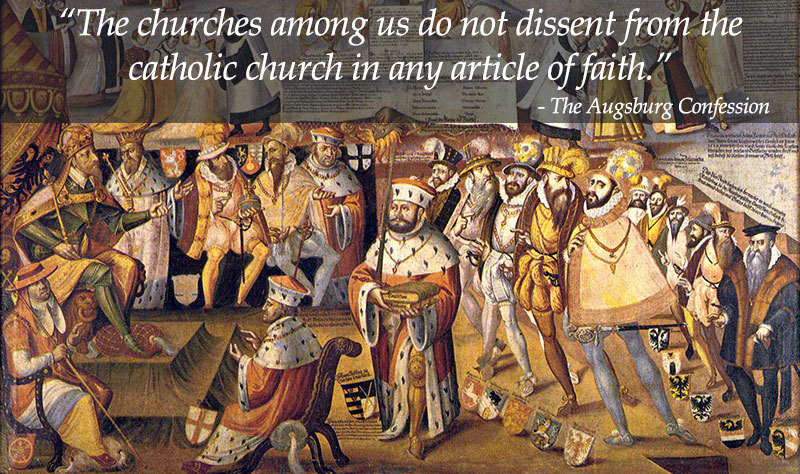Wed 24 Dec 2014
Celebrating Christ’s birthday… and ours too
Posted by Mathew Block under Articles, Main, Theological Musings
No Comments

My Christmas article for this year is up at The Canadian Lutheran.
“When it comes to Christmas, the picture of the baby Jesus asleep in a manger is etched in our cultural consciousness. We imagine the little Lord Jesus laying down His sweet head in the hay, while stars twinkle away in the sky. How easy it is to forget that this little child is also, in a way beyond our understanding, the God who made the universe. He is the Word who spoke creation into existence (Genesis 1:3 ff; John 1:1-3). And He is the One who continues to sustain creation—the One who holds all things together and gives them being (Colossians 1:17; Acts 17:28).”
But, as I note, that good creation fell. So I ask the question:
“What sort of Saviour could heal and utterly ruined creation? What Saviour could restore the relationship between humanity and God? It could be no mere man for any human born would himself inherit the sinful nature of our first parents Adam and Eve. And yet it must be a man if justice were to be done; humanity had sinned and it was humanity that must pay the price for that sin.”
Thus begins my meditation on the mystery of the Incarnation—an event that brings forgiveness for sinners and restoration to a broken creation. Consequently, we celebrate not only Jesus’ birth at Christmas but our rebirth as well.
“As we celebrate the birth of Mary’s son Jesus we therefore also celebrate our adoption as children of God. For it was the one that made possible the other. ‘To all who received Him, He gave the right to become children of God,’ St. John tells us (John 1:12). All who are in Christ are made new. ‘Therefore if anyone is in Christ, he is a new creation,’ St. Paul explains. ‘The old has passed away; behold, the new has come’ (2 Corinthians 5:17).”
Read the whole thing in “God in the Flesh: The Meaning of Christmas.”
———————

 My latest piece for First Things takes up a subject I’ve discussed elsewhere from time to time: Christian Masculinity. The occasion for this particular post was a recent news story about “America’s manliest church”—one that’s raffled off guns and spends an inordinate amount of time talking about booze and “big balls.”
My latest piece for First Things takes up a subject I’ve discussed elsewhere from time to time: Christian Masculinity. The occasion for this particular post was a recent news story about “America’s manliest church”—one that’s raffled off guns and spends an inordinate amount of time talking about booze and “big balls.”
 A word of thanks to those continuing the conversation about my recent First Things article
A word of thanks to those continuing the conversation about my recent First Things article  So begins my most recent column for The Canadian Lutheran. It considers the increasingly secular culture in which Canadian Christians find themselves, and notes a rising intolerance towards Christians in our country. To be sure, this intolerance is not persecution in the strict sense of the term, I note; we do not face martyrdom the way some people—Mariam Ibrahim of Sudan, for example—do for professing faith in Christ. “Nevertheless,” I argue, Christians in Canada are also learning, if only a little, what it means to suffer for Christ.”
So begins my most recent column for The Canadian Lutheran. It considers the increasingly secular culture in which Canadian Christians find themselves, and notes a rising intolerance towards Christians in our country. To be sure, this intolerance is not persecution in the strict sense of the term, I note; we do not face martyrdom the way some people—Mariam Ibrahim of Sudan, for example—do for professing faith in Christ. “Nevertheless,” I argue, Christians in Canada are also learning, if only a little, what it means to suffer for Christ.”

